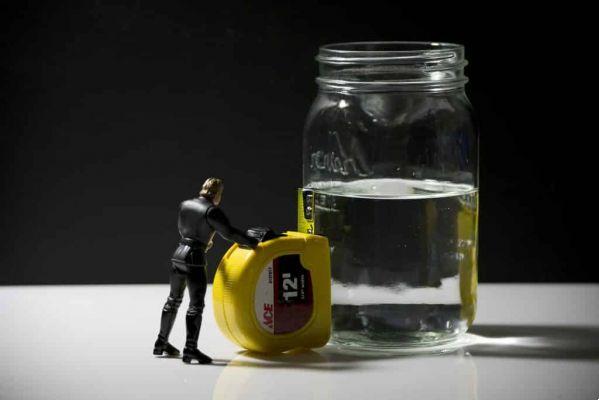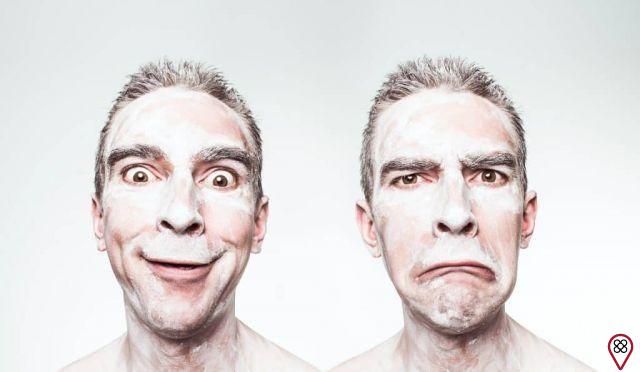Do you see the glass as half full, half empty, or do you just see a glass half full of liquid? In other words, are you an optimist, a pessimist, or a realist? These three postures change the way we see life and, consequently, how we choose to live.
For millennia, since philosophy has existed, human beings have asked themselves what is the best posture to adopt in life, so we decided to bring this discussion so that you can enrich your journey of self-knowledge: it is better to be realistic, optimistic or pessimistic. ?
Analyzing life
First of all, you need to understand these concepts. There are a multitude of ways of thinking about life, all influenced by different ideas, such as religion, philosophy, art, and so on. Within these divisions, there are subdivisions such as the Christian religion or the Buddhist religion, Greek or contemporary philosophy, etc.

To make this analysis, let us use existentialist philosophy. This is just a complicated term for a very simple idea. According to existentialists, no event or fact, including life, has meaning; we are the ones who assign meaning to them.
So this means that we, as human beings, give meaning to something, and that, of course, my meaning for an event can be very different from yours, even if the event is the same.
a brief example
Want an example of this? Let's talk about death. Do any of us know what happens when we die? No, we just have theories about it. In other words, death is a fact, but each one understands it in a unique and subjective way.
A Christian, for example, believes that when he dies, he will receive eternal life, where everything will be beautiful, wonderful and perfect. An optimistic view, no? An atheist, one who does not believe in anything spiritual, probably believes that when we die, everything ends, that is, there is no after. A pessimistic view, no?
And we have the agnostic, the one who does not believe in spirituality, but does not “disbelieve”, because he cannot believe in the existence or non-existence of the spiritual world. For him, death is just death and we don't know what comes next, no guesswork. A realistic view, no?
Optimism, Pessimism and Realism

If it's still not clear, here are some concepts:
• Optimism, according to the Oxford Dictionary, is “the willingness to face things on the positive side and always hope for a favorable outcome, even in very difficult situations”;
• Pessimism, according to the Oxford Dictionary, is “the tendency to see and judge things on the most unfavorable side; disposition of those who always expect the worst”;
• Realism, according to the Oxford dictionary, is “the attitude of someone who is aware of reality and evaluates it with fairness and objectivity, avoiding emotional judgments”.
After all, is it better to be realistic, optimistic or pessimistic?
The short answer would be “it depends”, but it is much more complex than that.
At first glance, assuming that being an optimist is the ideal can be tempting, because the optimist seems happier, more motivated, more hopeful, right? If, however, there is a lot of difficulty in the world and we often fail, isn't it dangerous to think that everything will always work out all right?

In the same way, life has its difficulties and its problems, but we also experience good things and experience happiness in our walk. So, assuming that everything will go wrong and always being pessimistic is pretty distorted, don't you think?
And finally, is it always beneficial to be realistic and let go of our emotions, such as fears, hopes, joys, and frustrations? Is it not just our emotions that make us human?
Pros and cons
To deepen this answer and enrich your journey of self-knowledge, let's analyze some pros and cons of each of these postures:
• Realism: seeing things as they are, adapting your expectations, being ready for victory and defeat;
• Optimism: having hope, believing in beginnings, growing with defeats and frustrations, having faith in your projects and efforts;
• Pessimism: being prepared for the worst, not being blinded by false hopes, seeing difficulties and preparing for them.
Conclusion?
If it is possible to reach any conclusion on this matter, the ideal would be to say that the best thing is not to always adopt one of these three postures, but to try to mix them, adapt them and move from one to the other according to the situation.
Being realistic is sometimes essential, so that we don't blind ourselves with emotions that prevent us from seeing things as they are, in a rational way.
Being pessimistic can make us “get real”, avoiding believing in illusions and putting our chips on false hopes.
Being optimistic is great in moments of fresh start, to grow after defeats and hope for better days when everything looks bad.
Mix these three postures and you will probably find the most balanced way to be on this long walk of life.
To end this article, here are three quotes on the subject, each advocating one of these three positions:
You may also like
- Learn to keep optimism in everyday life!
- Understand how pessimism can harm your health
- Reflect on the differences between the life of an optimist and a pessimist
"The pessimist sees difficulty in every opportunity; The optimist sees opportunity in every difficulty." — Winston Churchill
“Optimism is the habit of maintaining that all is well when all is wrong.” — Voltaire
“The optimist is a fool. The pessimist, a bore. It's really good to be a hopeful realist.” — Ariano Suassuna.
So, what's your conclusion? Do you prefer to be realistic, optimistic or pessimistic? Share with us your opinion on this subject and on how you live life!

























